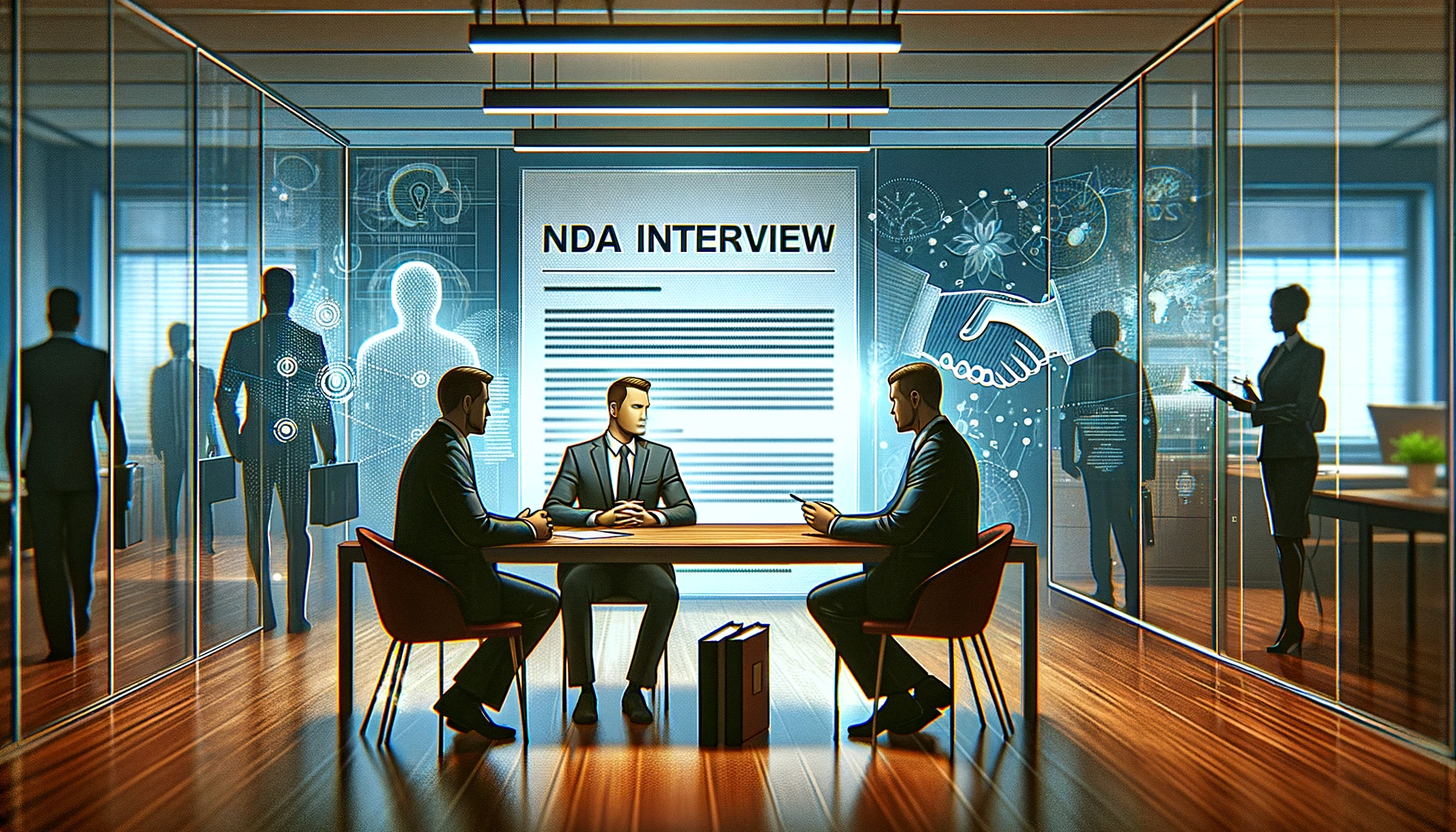Navigating NDA Interviews: A Comprehensive Guide
In today's competitive business landscape, Non-Disclosure Agreements (NDAs) have become a cornerstone in protecting sensitive information during the hiring process. An NDA interview refers to any interview process where candidates are required to sign an NDA to discuss confidential company information. This article provides a comprehensive guide to understanding and navigating the intricacies of NDA interviews, ensuring both parties—employers and potential employees—can maintain confidentiality while exploring employment opportunities.

Understanding Non-Disclosure Agreements
A Non-Disclosure Agreement, commonly referred to as an NDA, is a legally binding contract that ensures confidentiality between two or more parties. In the context of job interviews, it prevents candidates from disclosing proprietary or sensitive information learned during the interview process. The U.S. Small Business Administration provides a clear definition and utility of NDAs in a business setting.
The Importance of NDAs in Interviews
NDAs are crucial for companies that deal with innovative technologies, proprietary processes, or any information that gives them a competitive edge. By implementing an NDA in interviews, companies can freely discuss job specifics, roles, and responsibilities that may involve sensitive information, without the fear of this information becoming public. The World Intellectual Property Organization offers insights into how NDAs can safeguard intellectual property during such processes.
Crafting an Effective NDA for Interviews
Creating an NDA that is both protective and fair is essential. It should clearly define what constitutes confidential information, the scope of confidentiality, and the duration of the agreement. Including too broad a definition can deter potential candidates, while too narrow may leave the company's assets unprotected.
Key Components of an Interview NDA
Definition of Confidential Information: Specify what information is considered confidential. This can include business strategies, technical processes, client lists, and other proprietary data.
Obligations and Exceptions: Outline the candidate's obligations to protect the confidential information and any exceptions to the confidentiality agreement.
Duration: The term of the NDA should be reasonable; typically, this is until the information becomes public through no fault of the interviewee or until it's no longer considered confidential.
Consequences of Breach: Detail the legal repercussions if the agreement is violated.
For further guidance, templates and examples of NDAs can be found on educational and governmental sites, such as Harvard University's Office of Technology Development which provides templates for various agreements, including NDAs.

Create & Review Your Contracts 10x Quality and Ease
Lawyer-level AI handles all your contract needs, with real lawyers providing safeguarding support

The Legal Framework of NDAs
Understanding the legal underpinnings of NDAs is crucial for both employers and candidates. In the United States, the enforceability of NDAs is governed by state laws, which can vary significantly. The Electronic Privacy Information Center discusses the privacy implications and legal considerations of NDAs.
Enforceability and Considerations
An NDA is enforceable if it meets certain criteria, such as being clear in its intentions, reasonable in scope and duration, and signed by all parties involved. However, it cannot prohibit the disclosure of information required by law or prevent an individual from reporting illegal activities. The American Bar Association provides a thorough examination of the legal aspects of NDAs.
NDA Interviews: Best Practices for Employers
Transparency: Be clear with candidates about the need for an NDA and what it entails. This fosters trust and ensures candidates understand the importance of confidentiality.
Tailor NDAs: Customize your NDA to suit the specific needs of the position and information involved.
Legal Review: Always have your NDA reviewed by legal counsel to ensure it's enforceable and fair.
Navigating NDA Interviews as a Candidate
Understand Your Rights: Know what you are signing and how it affects your rights. Websites like Nolo offer resources on understanding NDAs from a legal perspective.
Ask Questions: If anything is unclear in the NDA, don't hesitate to ask for clarification.
Seek Legal Advice: Consider consulting with an attorney to review the NDA, especially if you have concerns about its terms.
Conclusion
NDA interviews are a critical tool for companies to protect their intellectual property and competitive edge while engaging with potential employees. By understanding the legal and practical aspects of NDAs, both employers and candidates can navigate these interviews confidently and securely. Remember, the goal of the NDA is not to intimidate but to protect the interests of both parties as they explore a potential working relationship. With the right preparation and approach, NDA interviews can be a positive step towards a successful employment outcome.
For additional information on NDAs and their role in employment, educational resources such as Stanford University's Office of Technology Licensing provide valuable insights and guidance.

